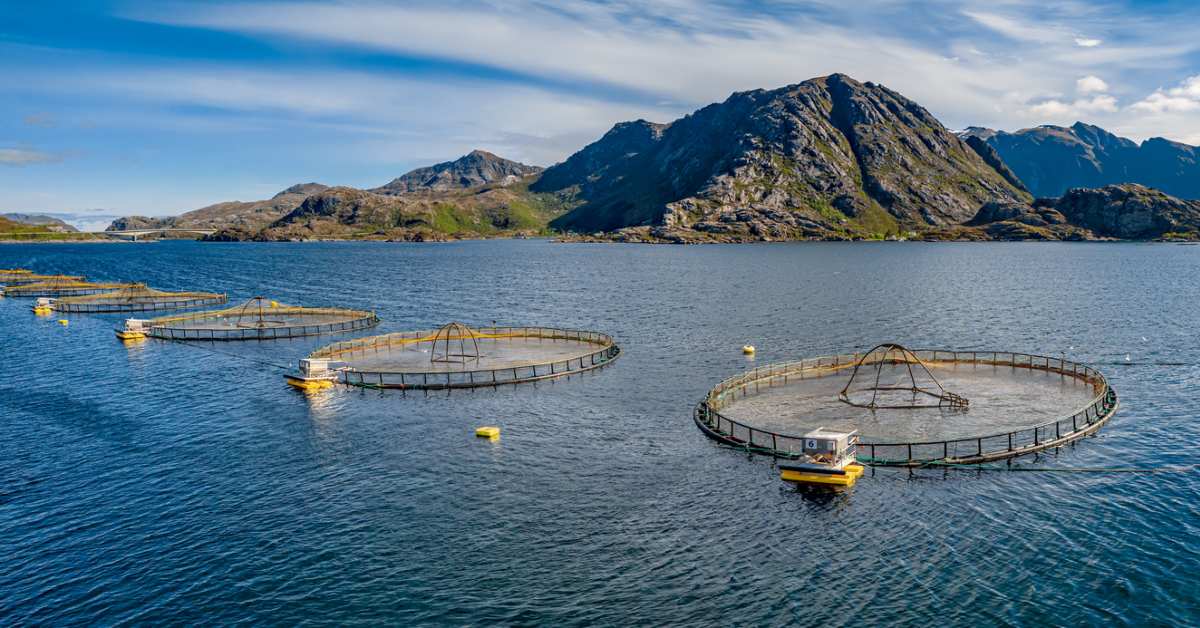The salmon ocean farming industry is a rapidly growing sector of the global seafood market. The industry has seen significant growth in recent years, with production levels reaching more than 1.5 million metric tons in 2021.
The main drivers of this growth are rising consumer demand for healthy and sustainable seafood options, as well as the increasing popularity of farmed salmon.
The various types of aquaculture in the salmon farming sector is adopting stringent industry standards. These best practices are intended to guarantee that salmon ocean farms follow a similar set of regulations and standards while producing salmon for customers.
Over time, as new technology and research emerge, industry best practices will adapt. Farmers are presently experimenting with different feed ingredients to guarantee a safe product while still maintaining productivity, and they are testing new technologies to reduce the demand for deadly predator control methods.
Salmon Ocean Farming is Safe for the Environment
Salmon ocean farming is seen as a more sustainable and environmentally friendly alternative to traditional land-based salmon farming, which has been linked to negative environmental impacts such as deforestation and chemical runoff.
The most significant environmental impact of salmon ocean farming is the potential impact on wild salmon populations. Salmon ocean farming can have a direct impact on wild salmon populations by reducing their food supply. There is also a risk that diseases from farmed salmon could spread to wild salmon, although these have been mostly unfounded.
Another significant environmental impact of salmon ocean farming is the impact on marine ecosystems. Salmon ocean farms can have an effect on marine ecosystems by reducing water quality, increasing sedimentation, and disturbing seabed habitats.
In order to mitigate these environmental impacts, the salmon ocean farming industry has developed feed management systems that aim to reduce the amount of feed needed to raise salmon for commercial sale.
One such system is the use of integrated multi-trophic aquaculture (IMTA), which utilizes waste products from other aquaculture operations to feed farmed salmon. This reduces the amount of fishmeal and fish oil needed to produce salmon, and also helps recycle nutrients back into the marine ecosystem.
Another feed management system used by the salmon ocean farming industry is the use of plant-based feeds. This involves replacing a portion of the fishmeal in salmon feed with plant-based proteins, such as soybean meal and canola oil. This reduces the amount of wild fish needed to produce salmon feed, and also helps to reduce the industry’s reliance on fishmeal gathered from unsustainable sources.
The salmon ocean farming industry is taking steps to reduce its environmental impacts, and these initiatives should be applauded. By using feed management systems that reduce the amount of feed needed to raise salmon, the industry can help mitigate some of its negative environmental impacts and add to salmon conservation efforts around the world.
These systems are also helping to recycle nutrients back into the marine ecosystem, which is a positive for the environment. Consumers can feel good about choosing ocean farmed salmon over traditional land-based salmon farming, as salmon ocean farming is a more sustainable and environmentally friendly option. Learn more »
Salmon ocean farmers have made a commitment to minimize impacts on the natural environment through such current practices as:
Salmon Stock Containment
- Standard fish-handling procedures
- Appropriate employee training in areas like post-storm inspections, fish harvesting, cage moves and predator control
- A planned fish escape response plan
- Properly designed nets
- Constant equipment monitoring
Salmon Feed Management
- Feed supplied by recognized feed manufacturer
- Secure feed storage location to prevent unprotected access
- Proper feed administration systems like mechanized feeding, underwater technologies and fish observation
- If needed, safe medicated feed obtained by qualified veterinarian
Salmon Waste Material Management
- Inorganic waste disposed of properly – not in natural environment
- Regular cleaning of sites and shorelines
- Appropriate recycling of materials
- Management of organic waste according to specific locale regulations

